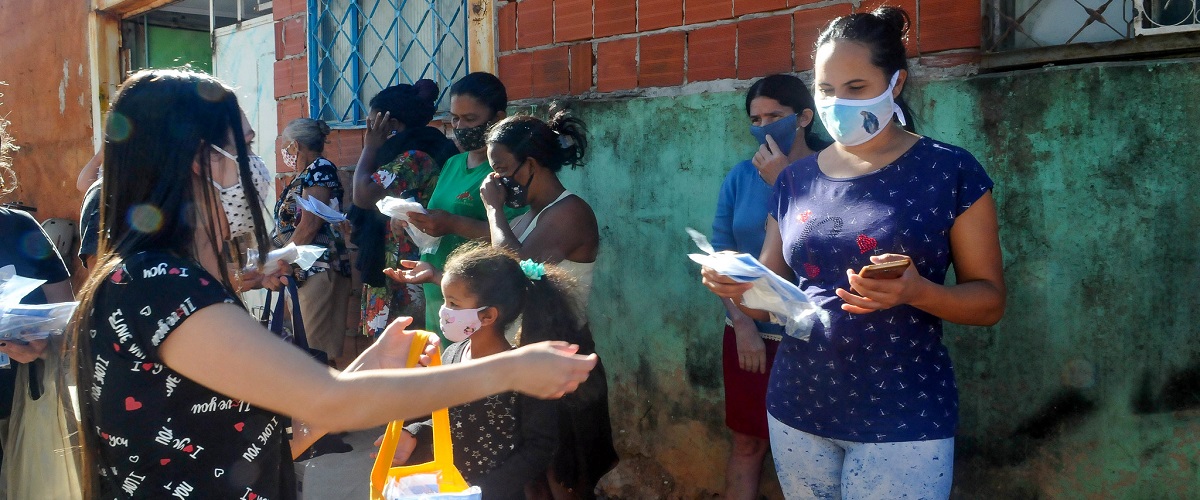
Gender and Health Systems in Low and Middle-Income Countries After COVID-19: the Promotion of Women’s Health and Emerging International Policy Advice
Primary Investigator: Professor Jean Grugel (Politics, University of York), Dr Maria Eugenia Giraudo, Dr Jessica Omukuti, Matthew Barlow and Tallulah Lines (IGDC, University of York)
Funders: Global Challenges Research Fund (GCRF), University of York
Health emergencies impact differently on men and women and exacerbate existing gendered inequalities. We know that previous pandemics (Ebola, Zika and SARS) exposed women to different health risks to men, chiefly because of their caring and family roles and their vulnerability to domestic violence, and also reduced their access to essential services including reproductive health services. We also know from the Zika outbreak in Brazil that women, especially vulnerable women, engage with health systems during and after health emergencies in different ways to men. Once the Covid-19 pandemic has passed, how will governments respond to the health needs and rights of women?
Many countries in the Global South will emerge from the Covid-19 pandemic with badly damaged economies; the responses to the economic crisis, which may include fiscal restraint and cuts in public spending will likely exacerbate women’s unemployment and lead to loss of household income, thereby creating create additional health risks for women over the medium to long term. The World Bank, for example, has predicted negative growth (between -2% and -5%) this year in sub-Saharan Africa instead of the expected 3-4% economic expansion that had been expected.
To what extent is there awareness of the coming crisis in development and how far are governments in the global South benefiting from advice, support and funding to do the right thing and plan now to put in place measures that will protect the rights of women and ensure that governments make progress towards the Sustainable Development Goals?
This project will adopt different methods to identify and evaluate the early responses of international organisations to COVID-19 in the global South. In particular, it will explore the extent to which they are alert to the importance of supporting low and middle-income countries through the pandemic in ways that promote and protect the health needs and rights of women. In particular, it will seek to identify:
-
How far the gendered health impacts of COVID-19 in low and middle-income countries are recognised and prioritised, and what challenges are identified in meeting women’s health rights and needs during and after the pandemic?
-
How international organisations and donors propose to address the need to expand health systems capacity in low and middle-income countries in order to manage the pandemic and its immediate aftermath and, at the same time, advance the health needs and rights of vulnerable women girls during and after COVID-19?
-
What links, if any, are being made in policy advice to low and middle-income countries between health system responses to meet women’s health needs and welfare systems responses?
Image (modified) - Ação de conscientização e combate à Covid-19 no Sol Nascente/Pôr do Sol by Agência Brasília - (CC BY 2.0)
Contact us
Interdisciplinary Global Development Centre
igdc@york.ac.uk
01904 323716
Department of Politics and International Relations, University of York, Heslington, York, YO10 5DD, UK
Twitter
Contact us
Interdisciplinary Global Development Centre
igdc@york.ac.uk
01904 323716
Department of Politics and International Relations, University of York, Heslington, York, YO10 5DD, UK
Twitter